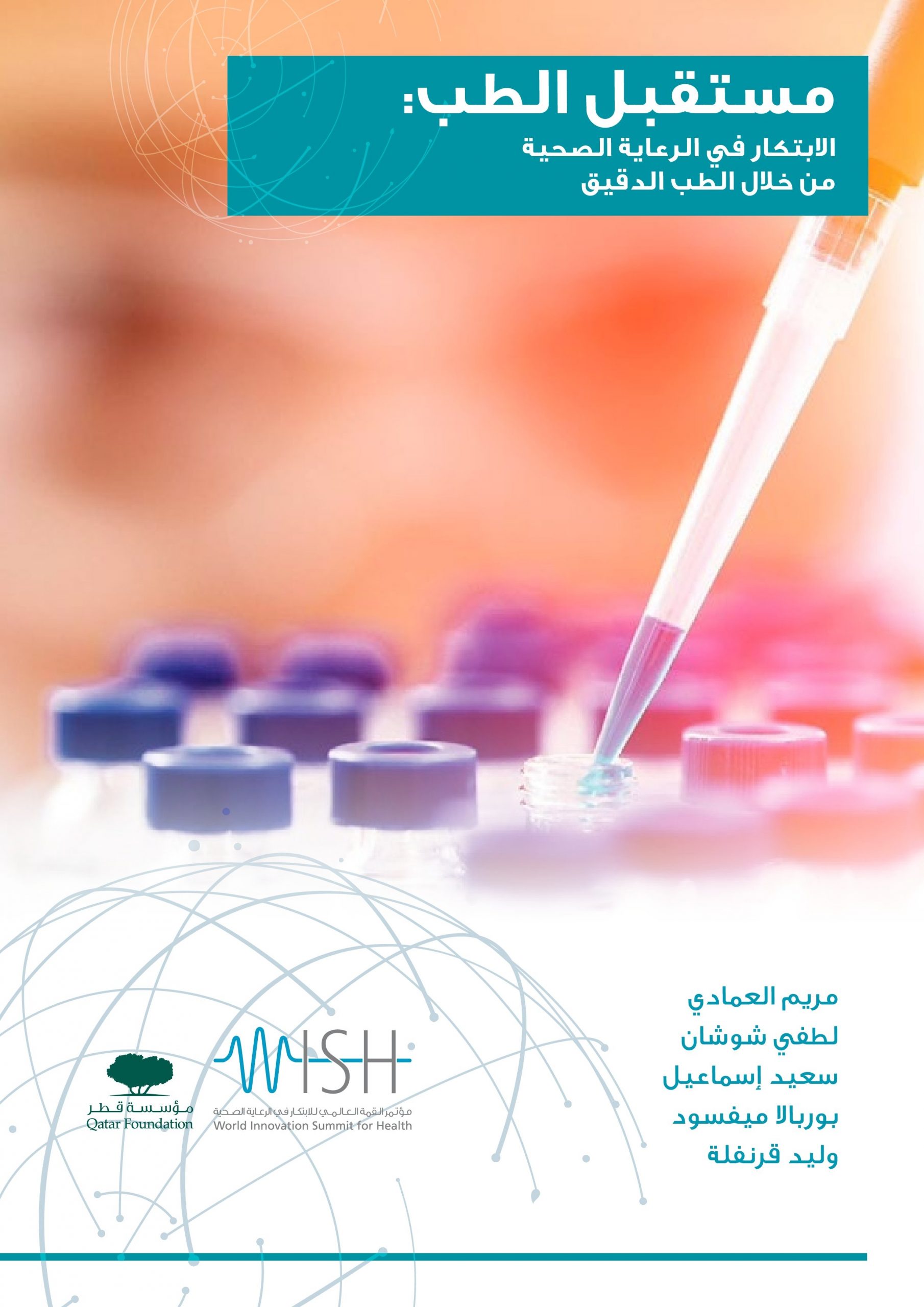مستقبل الطب: الابتكار في الرعاية الصحية من خلال الطب الدقيق
مريم العمادي, لطفي شوشان, سعيد اسماعيل, بوربالا ميفسود, وليد القرنفلة
يسلط الضوء على أنواع البرامج والمبادرات التي يجب تنفيذها لإشراك الوعي المحلي حول الطب الدقيق.

مريم العمادي, لطفي شوشان, سعيد اسماعيل, بوربالا ميفسود, وليد القرنفلة
يسلط الضوء على أنواع البرامج والمبادرات التي يجب تنفيذها لإشراك الوعي المحلي حول الطب الدقيق.
In 2016, WISH published its forum report on precision medicine “Precision Medicine – A Global Action Plan for Impact.” Healthcare is undergoing a transformation, and it is imperative to leverage new technologies to generate new data and support the advent of precision medicine (PM). Recent scientific breakthroughs and technological advancements have improved our disease knowledge and altered diagnosis and treatment approaches resulting in a more precise, predictive, preventative and personalised healthcare that is customised for the individual patient. Consequently, the big data revolution has provided an opportunity to apply artificial intelligence and machine learning algorithms to mine such a vast dataset. Additionally, personalised medicine promises to revolutionise healthcare, with its key goal of providing the right treatment to the right patient at the right time and dose, and thus the potential of improving quality of life and helping to bring down healthcare costs.
This policy briefing will look in detail at the issues surrounding continued development, sustained investment, risk factors, testing and approval of innovations for better strategy and faster process. The paper will serve as a policy bridge that is required to enhance a conscious decision among the powers-that-be in Qatar in order to find a way to harmonise multiple strands of activity and responsibility in the health arena. The end goal will be for Qatar to enhance public awareness and engagement and to integrate effectively the incredible advances in research into healthcare systems, for the benefit of all patients.
The PM policy briefing provides concrete recommendations on moving forward with PM initiatives in Qatar and internationally. Equally important are integration of PM within a primary care setting, building a coalition of community champions through awareness and advocacy, and finally, communicating PM value, patient engagement/empowerment and education/continued professional development programmes of the healthcare workforce.
Key recommendations for implementation of precision medicine inside and outside Qatar:
(a) Create community awareness and PM education programmes
(b) Engage and empower patients
(c) Communicate PM value
(d) Develop appropriate infrastructure and information management systems
(e) Integrate PM into standard healthcare system and ensure access to care
PM is no longer futuristic. It is here. Implementing PM in routine clinical care does require some investment and infrastructure development. Invariably, cost and lack of expertise are cited as barriers to PM implementation. Equally consequential are the curriculum and professional development of medical care experts.
Policy makers need to lead and coordinate effort among stakeholders and consider cultural and faith perspectives to ensure success. It is essential that policy makers integrate PM approaches into national strategies to improve health and healthcare for all.